OddCameras.com Voigtländer Superb
The Voigtländer Superb is a Twin Lens Reflex
6x6 camera, made by Voigtländer, Braunschweig, Germany.
Voigtländer is probably the oldest optical company in the world. It was founded in 1797 in
Vienna, Austria, by Johann Christoph Voigtländer. When in 1839 the
invention of photography was published, Voigtländer furnished the
optics and from 1840 on they made entire cameras. The Voigtländer
optics were the first mathematically calculated, developed by professor
Josef Maximilian Petzval with the help of Peter
Voigtländer. Peter Voigtländer set up a sales office in Braunschweig
which was in those days the central hub in the German rail network. It
offered an easy access to the German overseas ports.
In 1845 Peter Voigtländer married the daughter of a Braunschweig
lawyer. The Vienna business was closed in 1868. Voigtländer
Braunschweig became a stock company (AG in German), Voigtländer &
Sohn AG in 1898. In 1923 a majority of the shares were bought by
Schering AG which had a photo division and which launched large-scale
production in 1925.
There
are a lot of stories about Voigtländer and Franke & Heidecke, the
creators of the Rolleiflex about who made what first. Both are based in
Braunschweig. Tracing it down it seems as if Voigländer made stereo
cameras first, the Stereophotoskop from 1904 - 1926 with a non
focussing reflex finder and the Stereoflektoskop from 1914 - 1937 with
a focussing reflex finder. This camera was copied by Franke & Heidecke in 1921 as Heidoskop. Obviously Franke & Heidecke developed their Rolleiflex from this Voigtländer camera. So claiming the first is very difficult to decide. BTW: both,
Franke and Heideke had worked for many years for Voigtländer, the
former as a sales manager, the latter as an engineer.
The Superb was launched in 1932, the same year that a new
Rolleiflex model was launched. Both cameras were for 120 film (the
older Rolleiflexes were only for 117 film), both cameras had lever
advance and both cameras had a film counter. On both the shutter was
not yet cocked by the film advance. The Superb was a top class camera
with features that the Rolleiflex did not offer yet. The Superb had
parallax compensation, a feature that Rollei introduced more than 10
years later by again copying Voigtländer. The Superb was designed that
the photographer could see all settings with one glimpse and without
taking the camera off his eye.
Lenses:
Taking lens: Voigtländer Heliar 1:3.5 f=75mm, there was a Skopar version
Viewing lens: Voigtländer Helomar 1:3.5
Shutter: Compur, B, T, 1s to 1/250s, diaphragms 3.5 to 22.
Dimensions: 92 x 140 x 88 mm
Weight: 934 gr.
Some pictures:
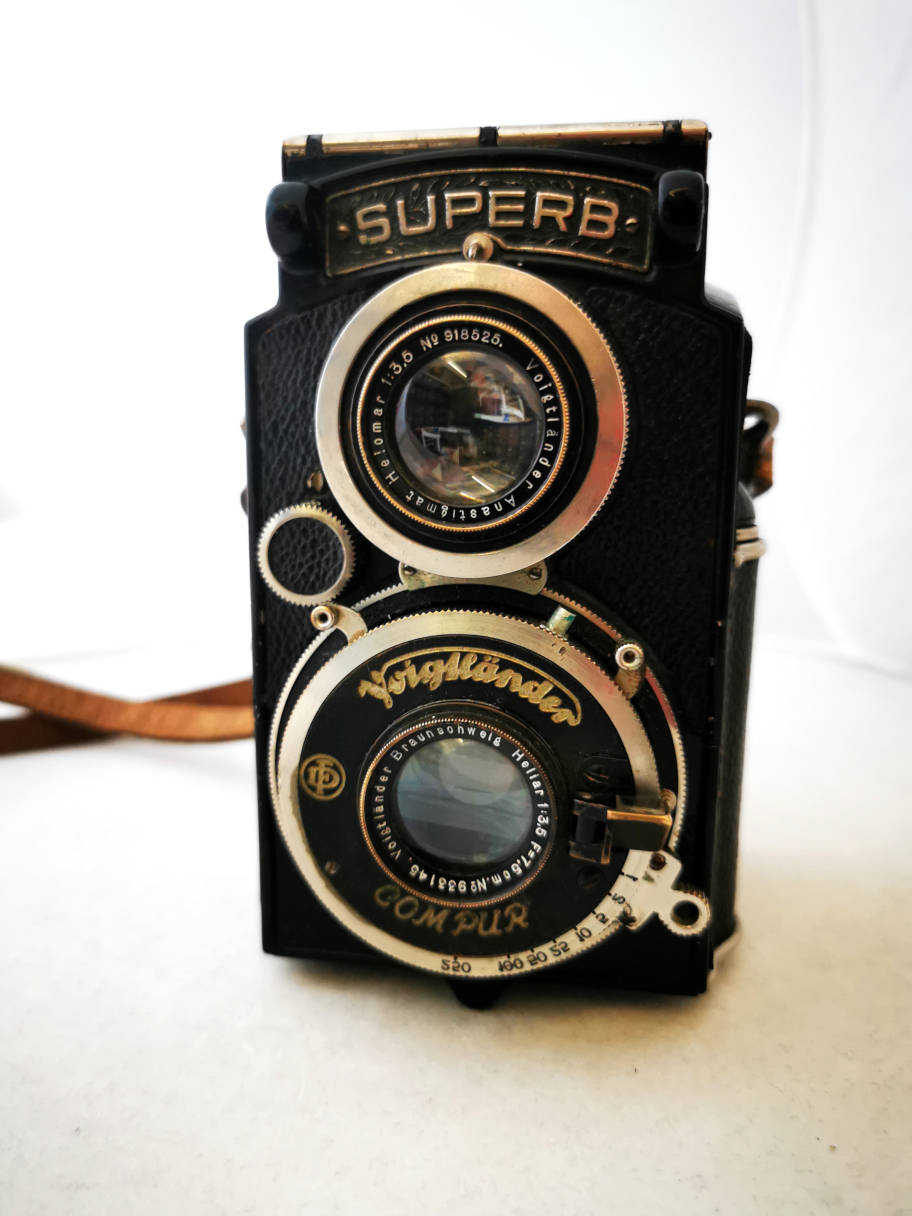
Camera
front. The big tab under the taking lens sets the distance. Above the
lens there are shutter cocking, flash connection and shutter release.
The speed number engraving is inversed as it is seen through a prism.
This camera has the very desirable and rare Heliar lens.
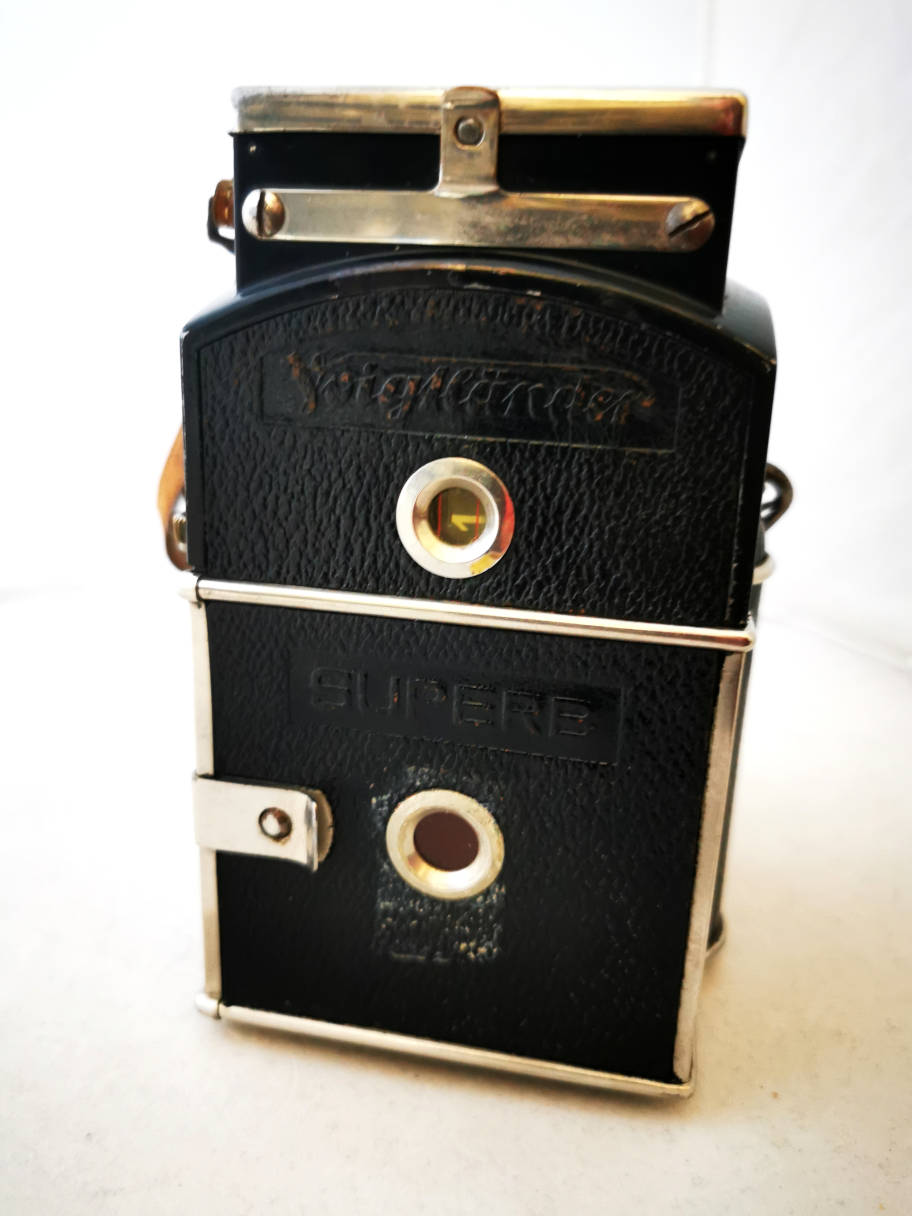
Camera
back. Counter and red window for the first film number. The rest of the
numbers can be seen in the counter. The red window cannot be shut. If
you use high ISO film, not available in those days, shut the window
with a strip of black tape.
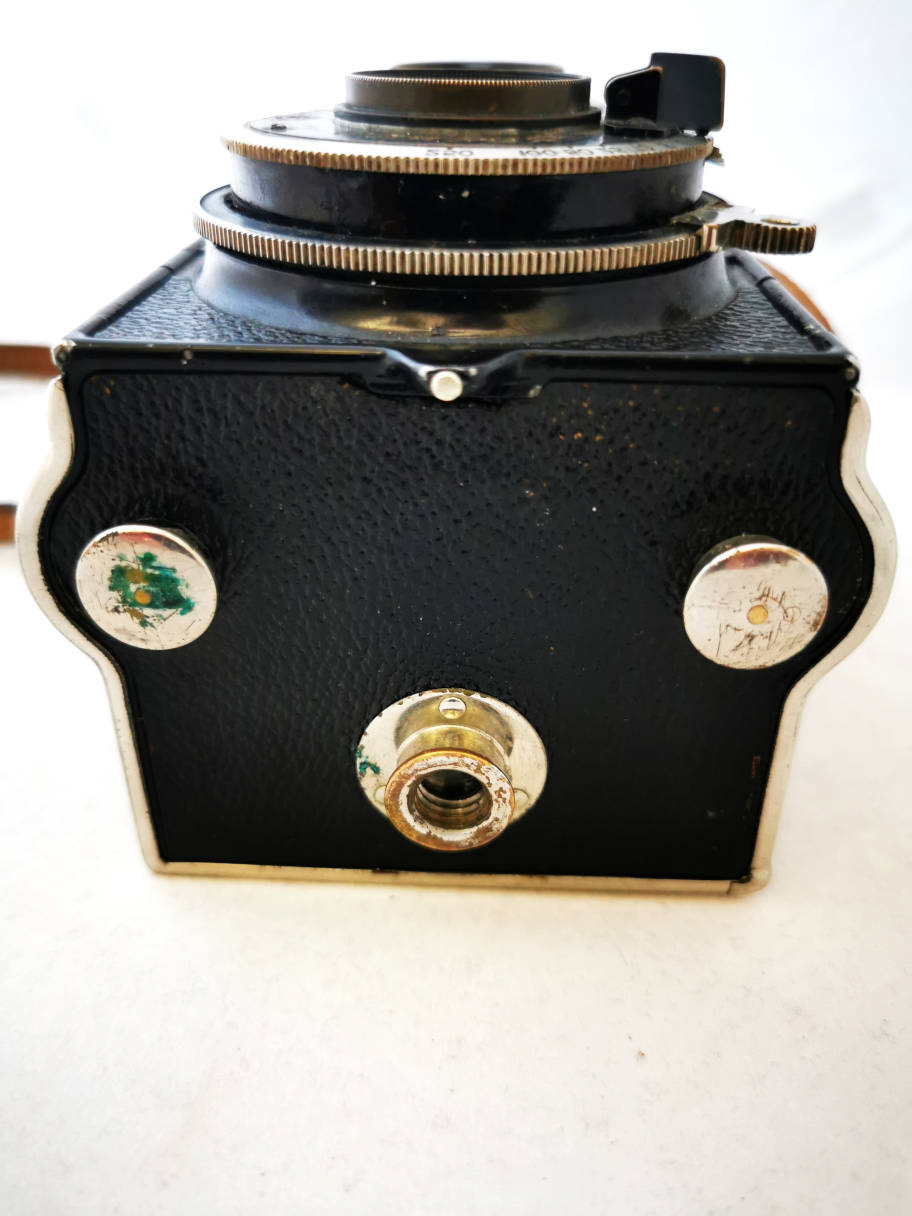
Camera bottom. Tripod mount.
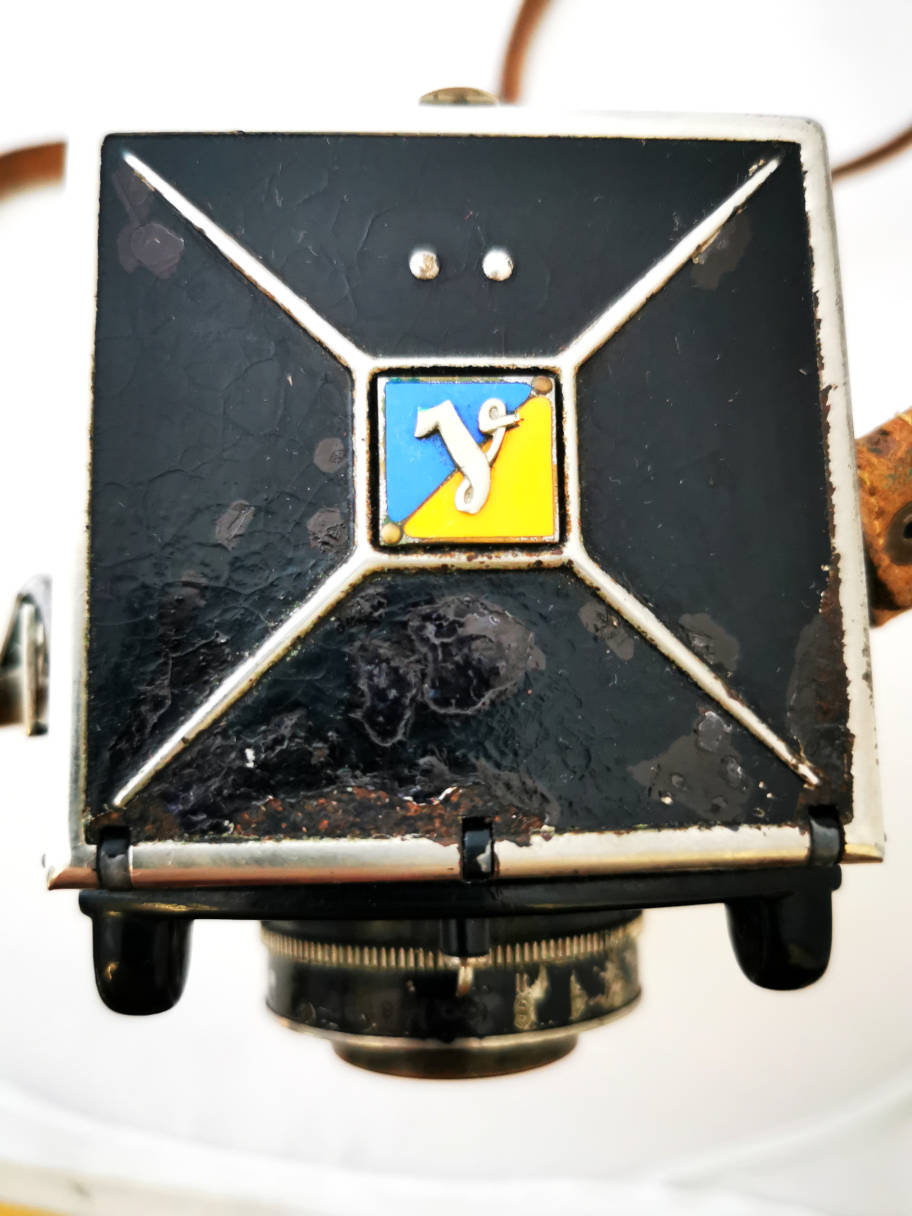
Seen
from above.
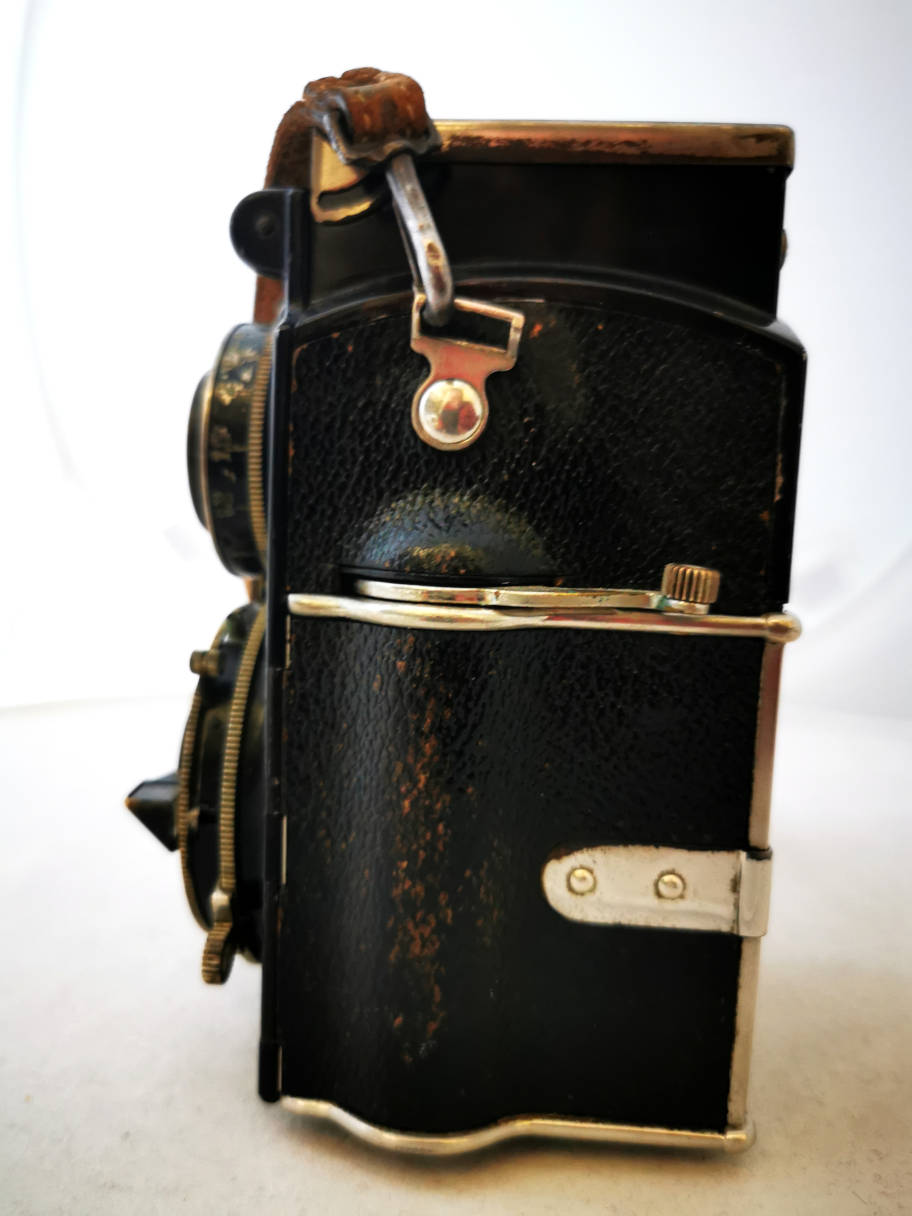
Camera right side. Advance lever.
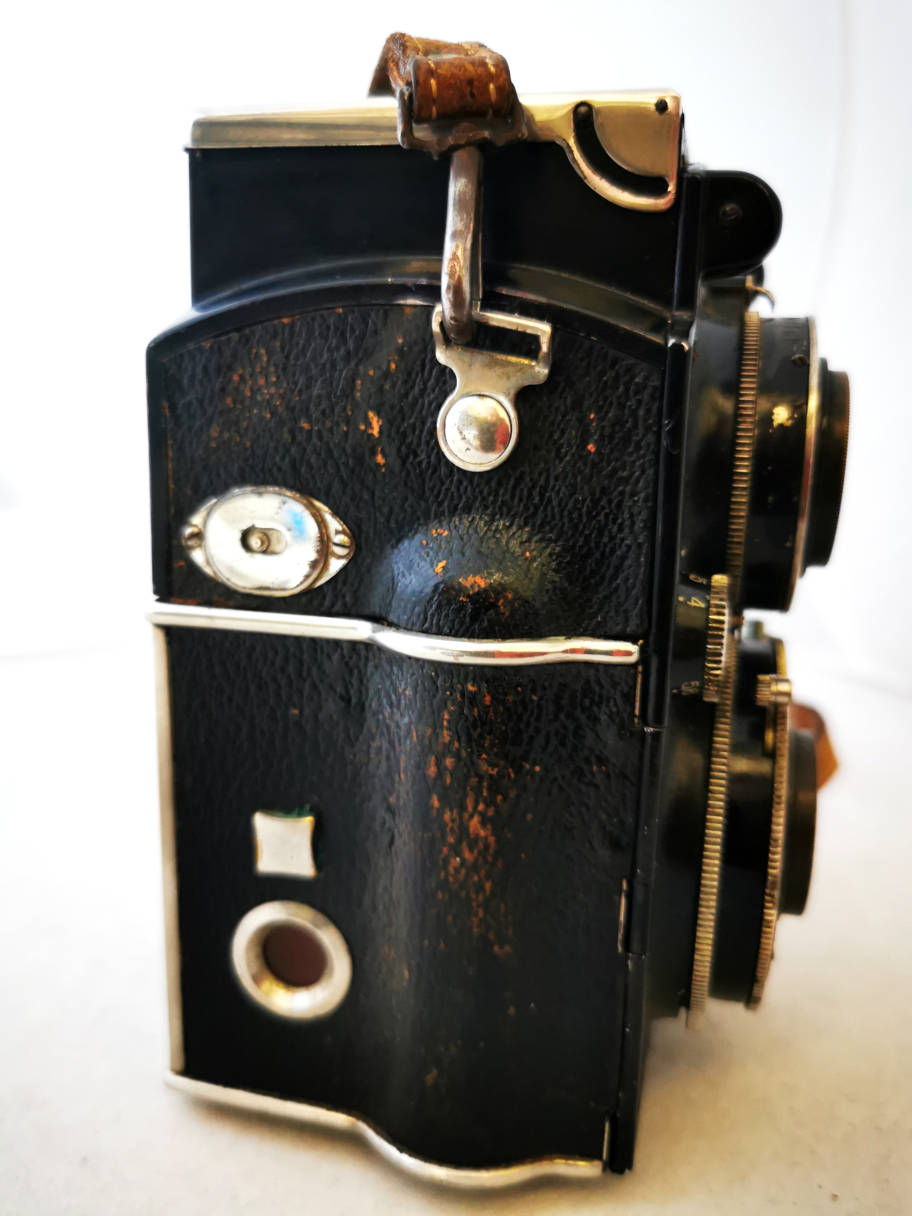
Camera
left side. Film counter reset. Second red window for a film format
that's no longer available. The square knob opens and closes this
window.
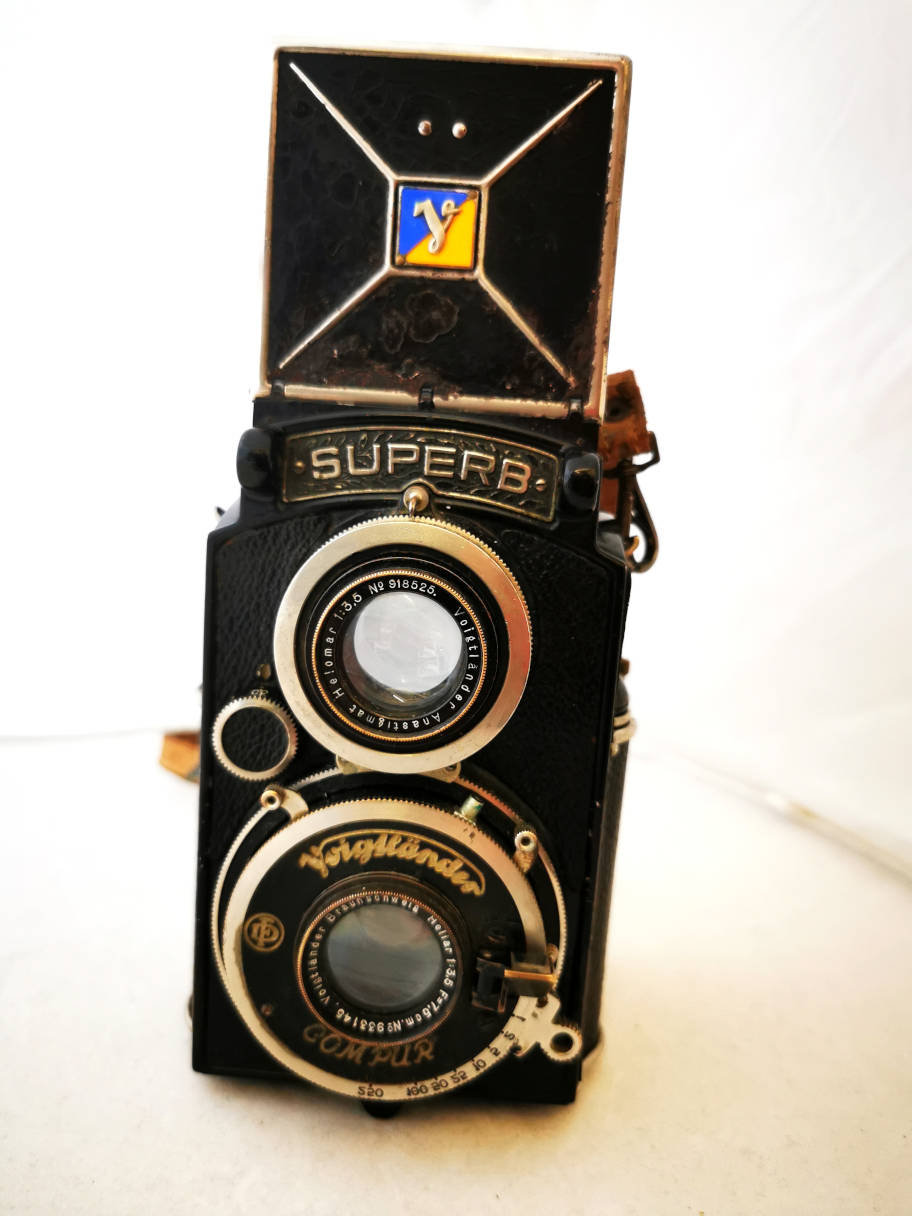
Camera open.
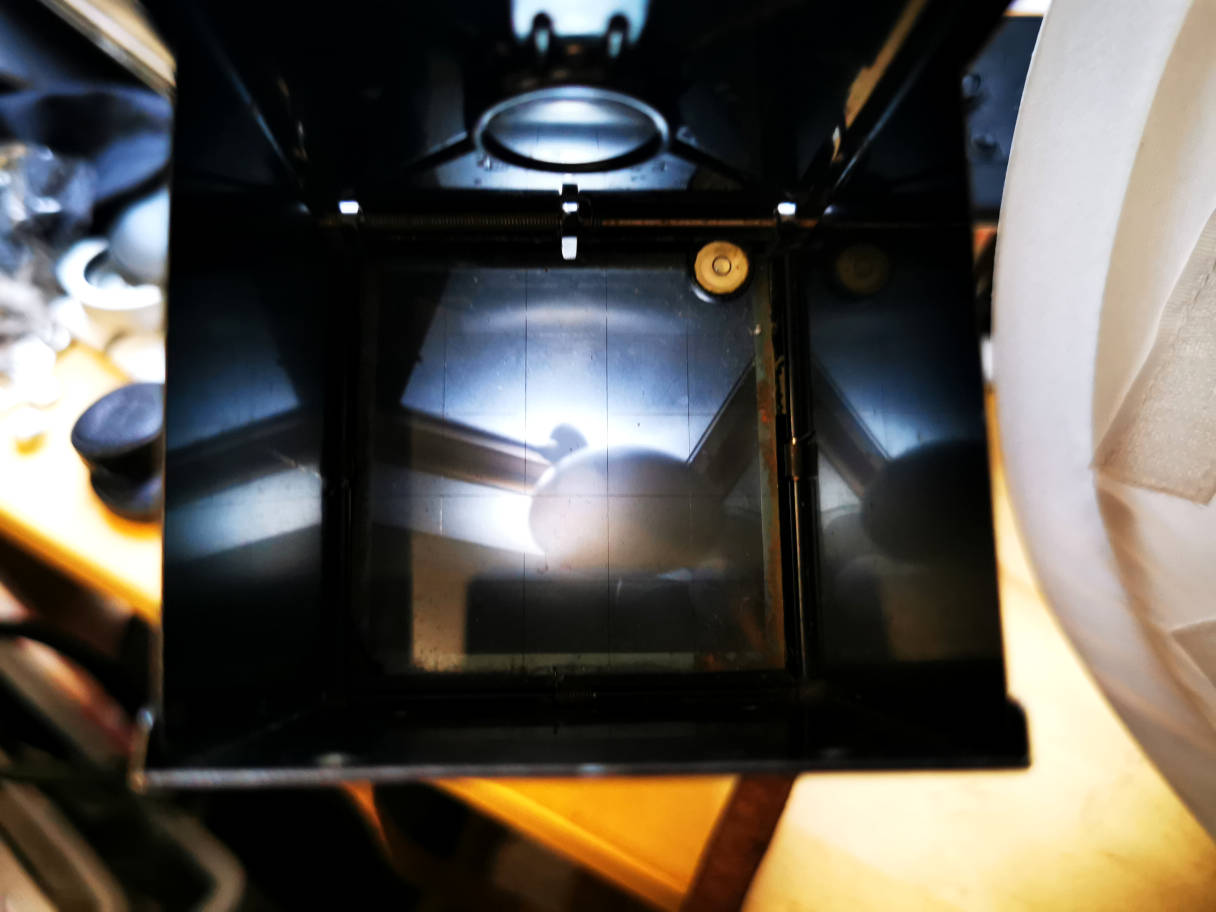
Luminous screen for those days, no fresnel yet. Bubble level integrated into the screen.
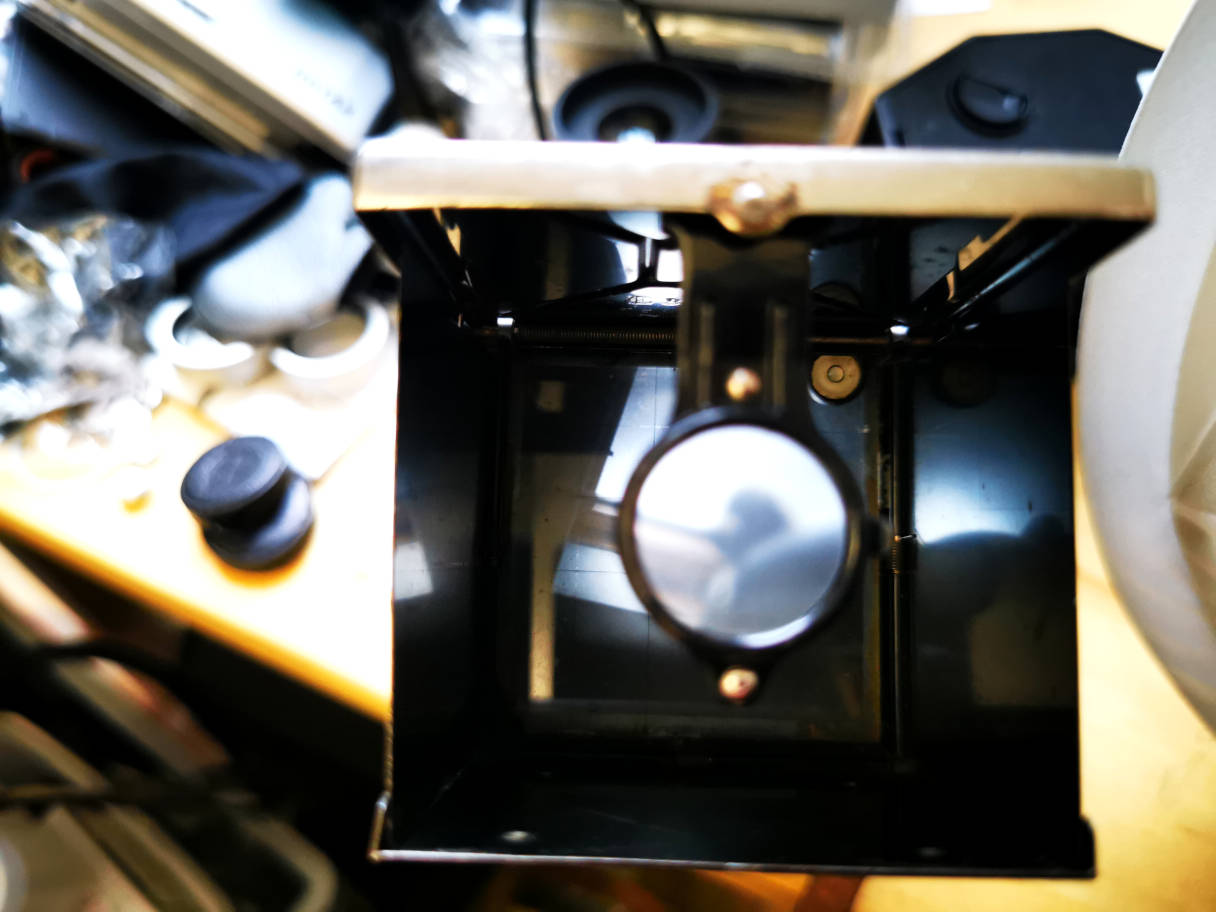
A loupe is provided.
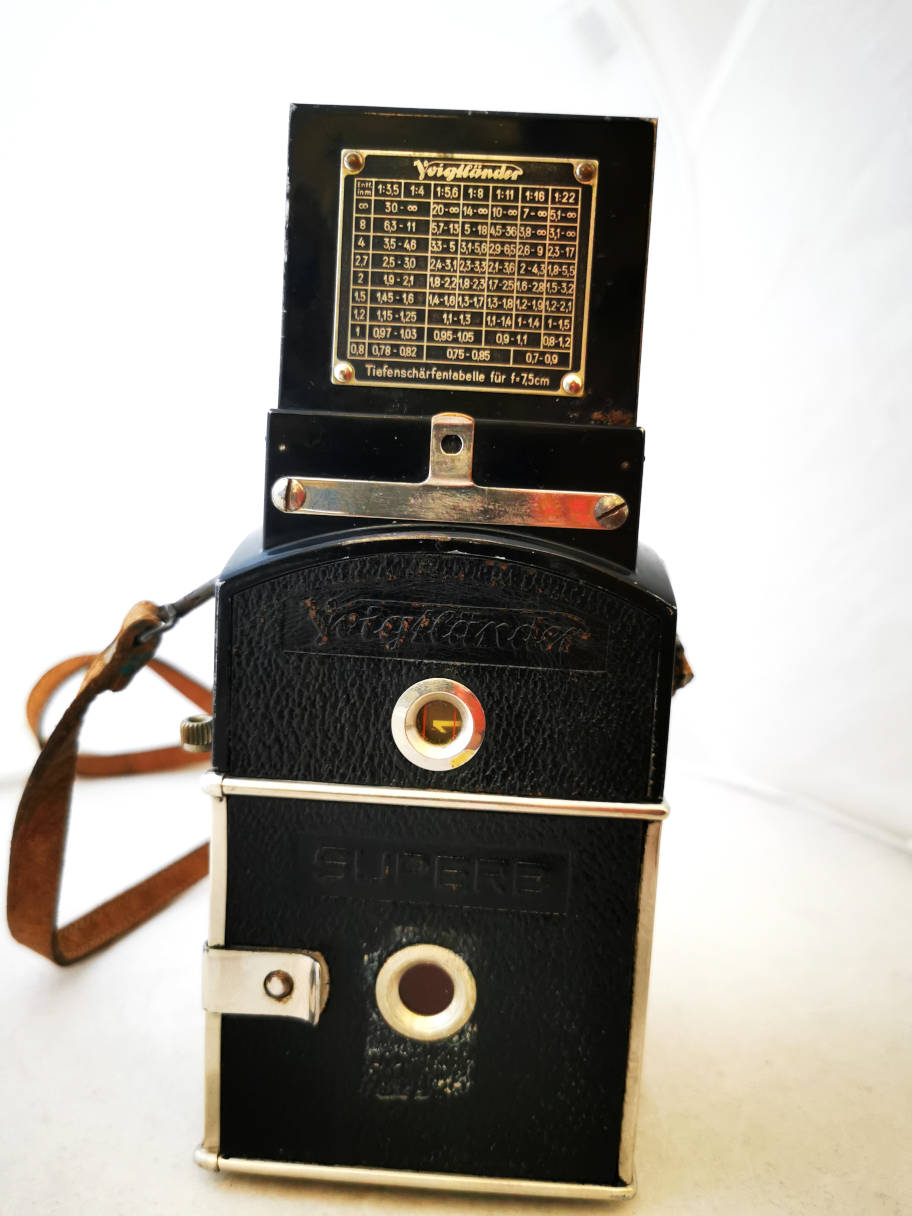
No sports finder.
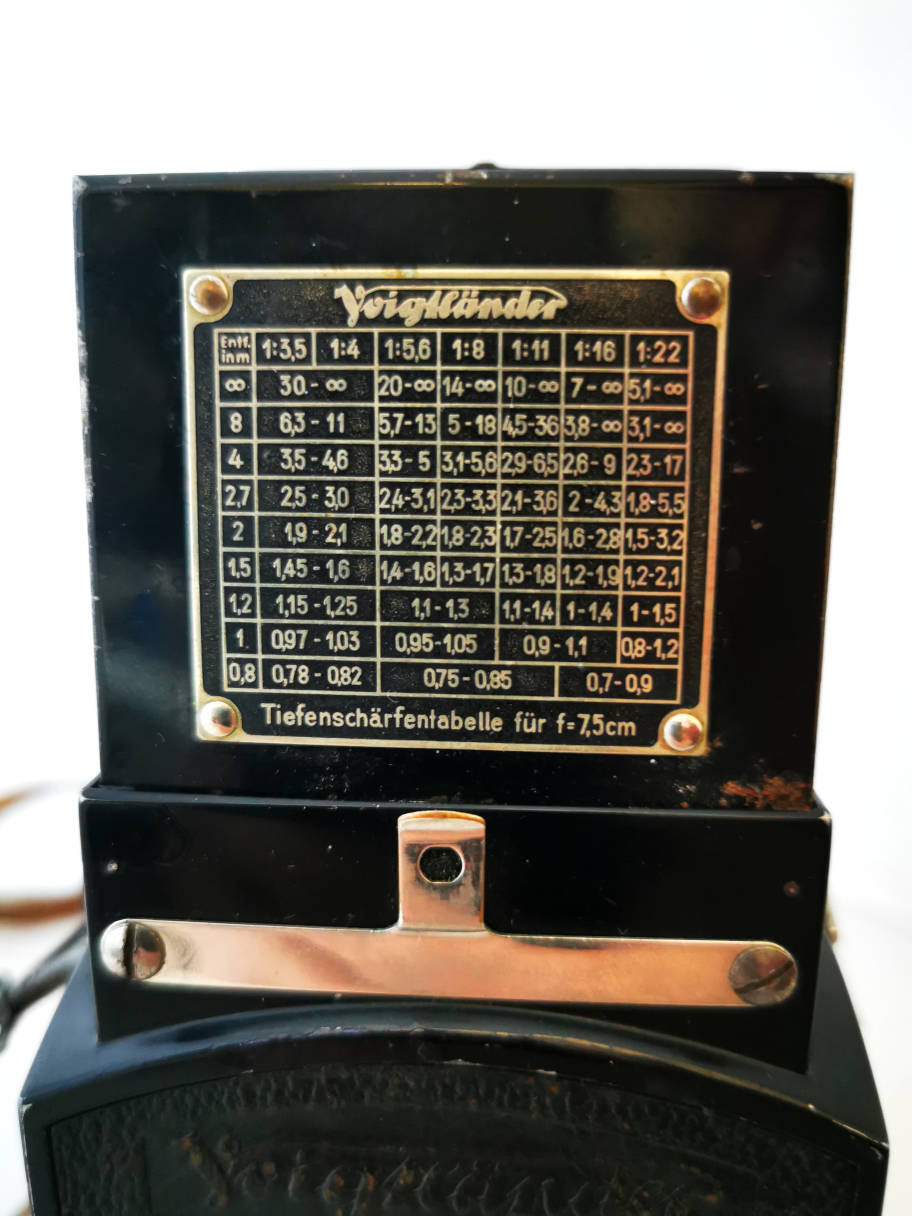
DoF table on the back flap of the viewer housing.
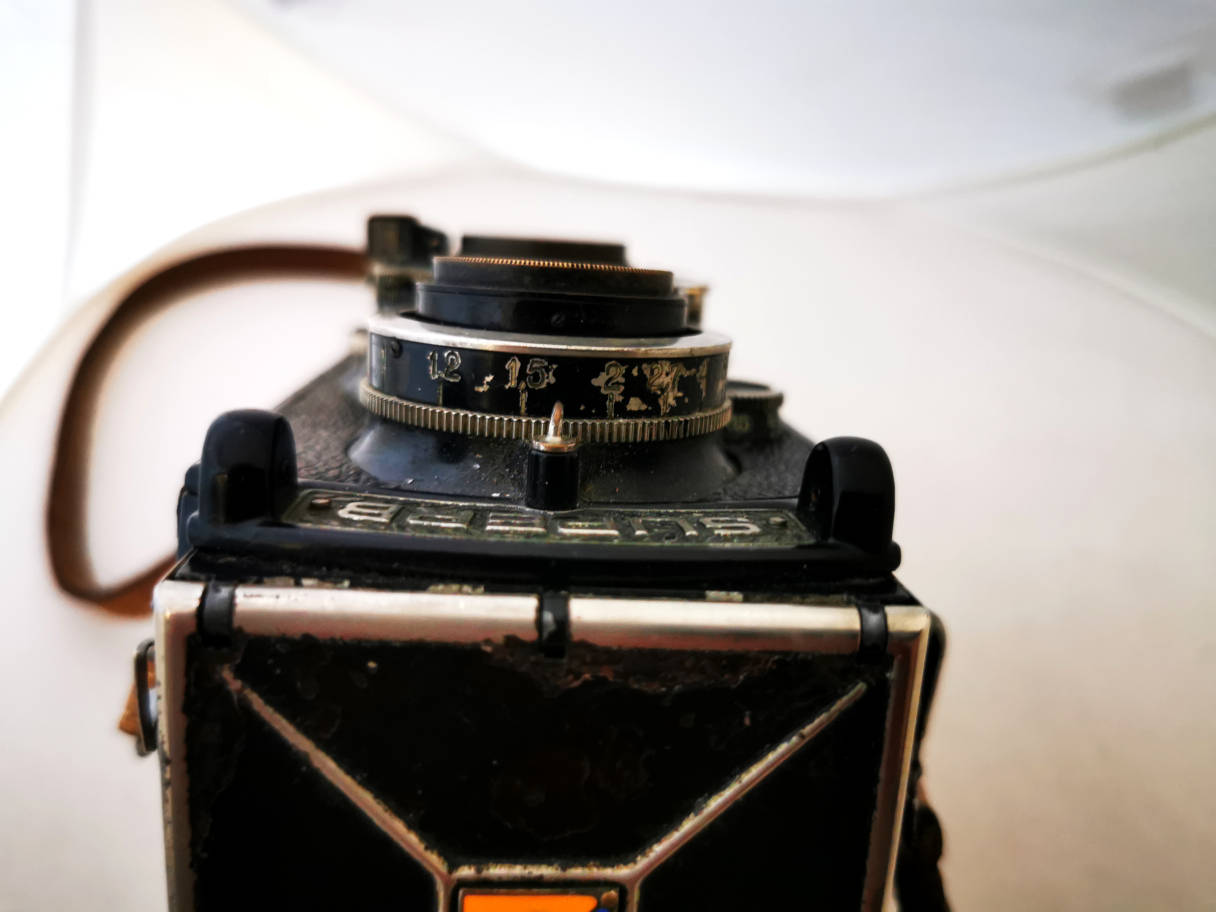
All settings are visible from above, distance setting...
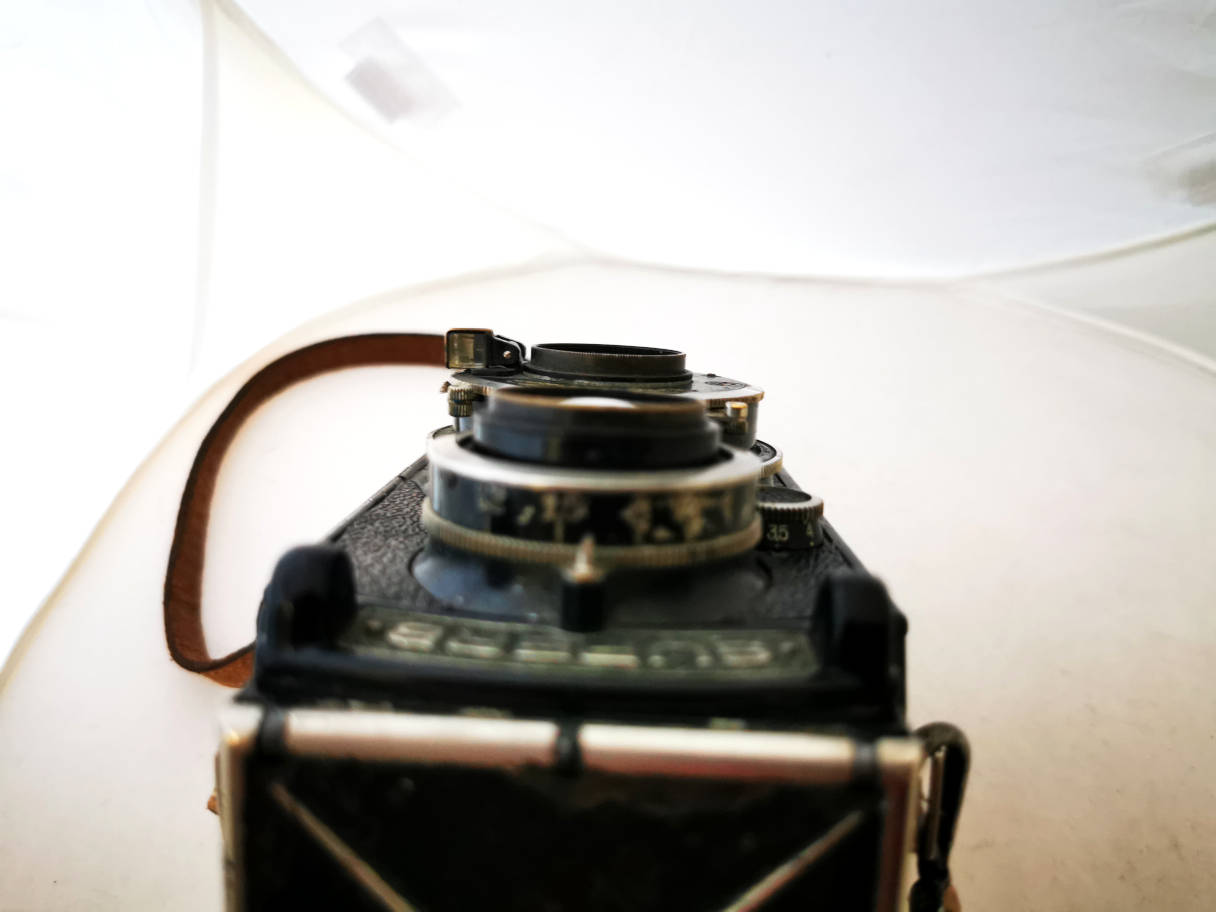
...aperture to the right of the finder lens barrel...
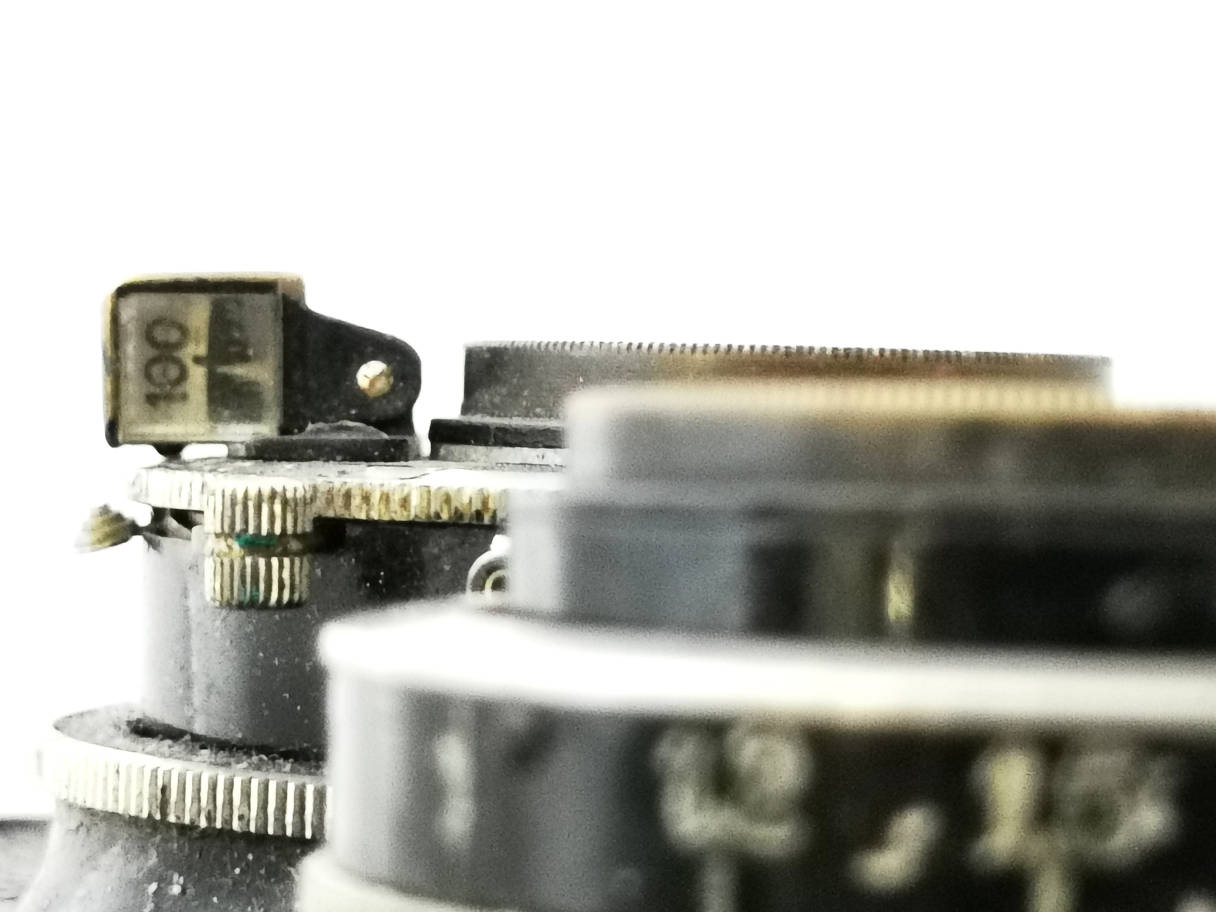
and speed via a prism.
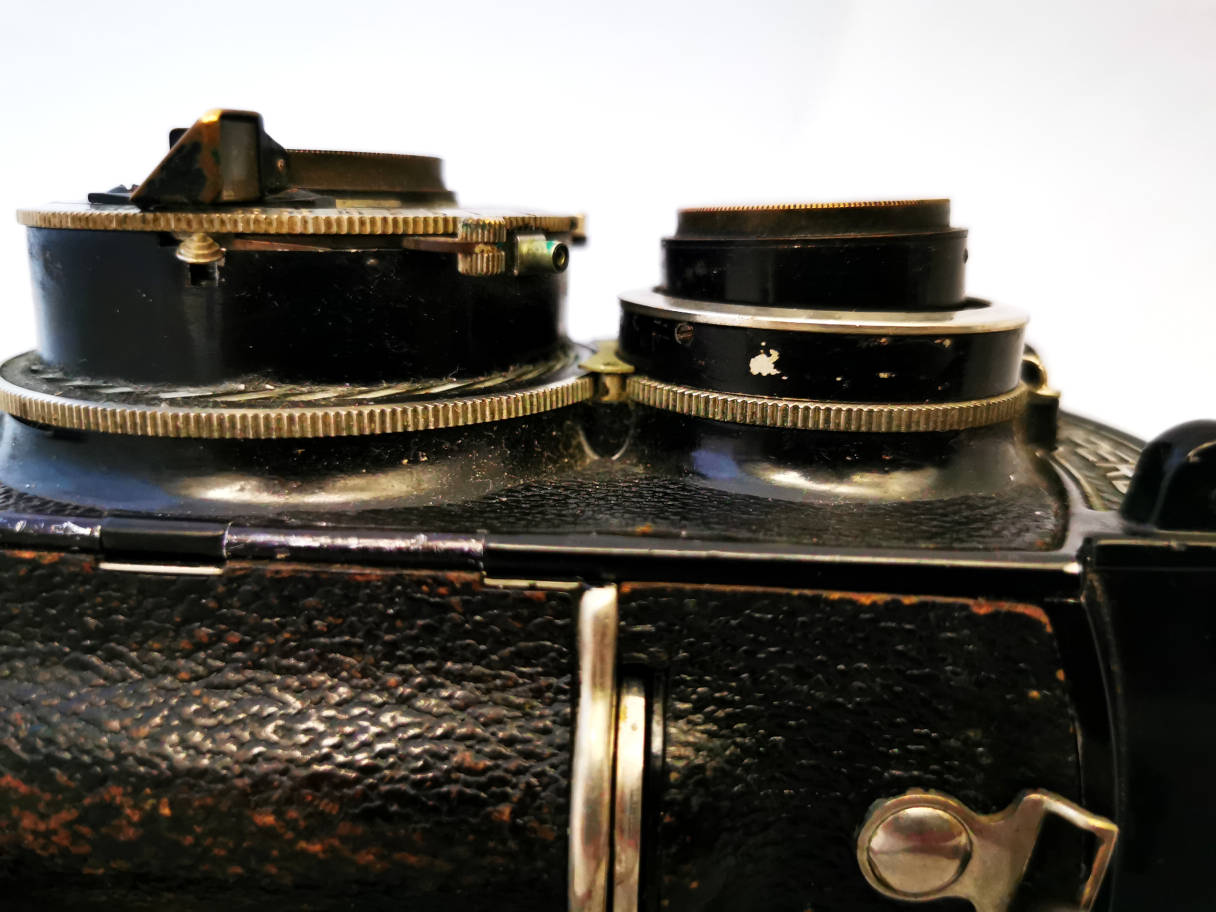
Parallax compensation at closest focus (0.8m !) the viewing lens tilts a lot...
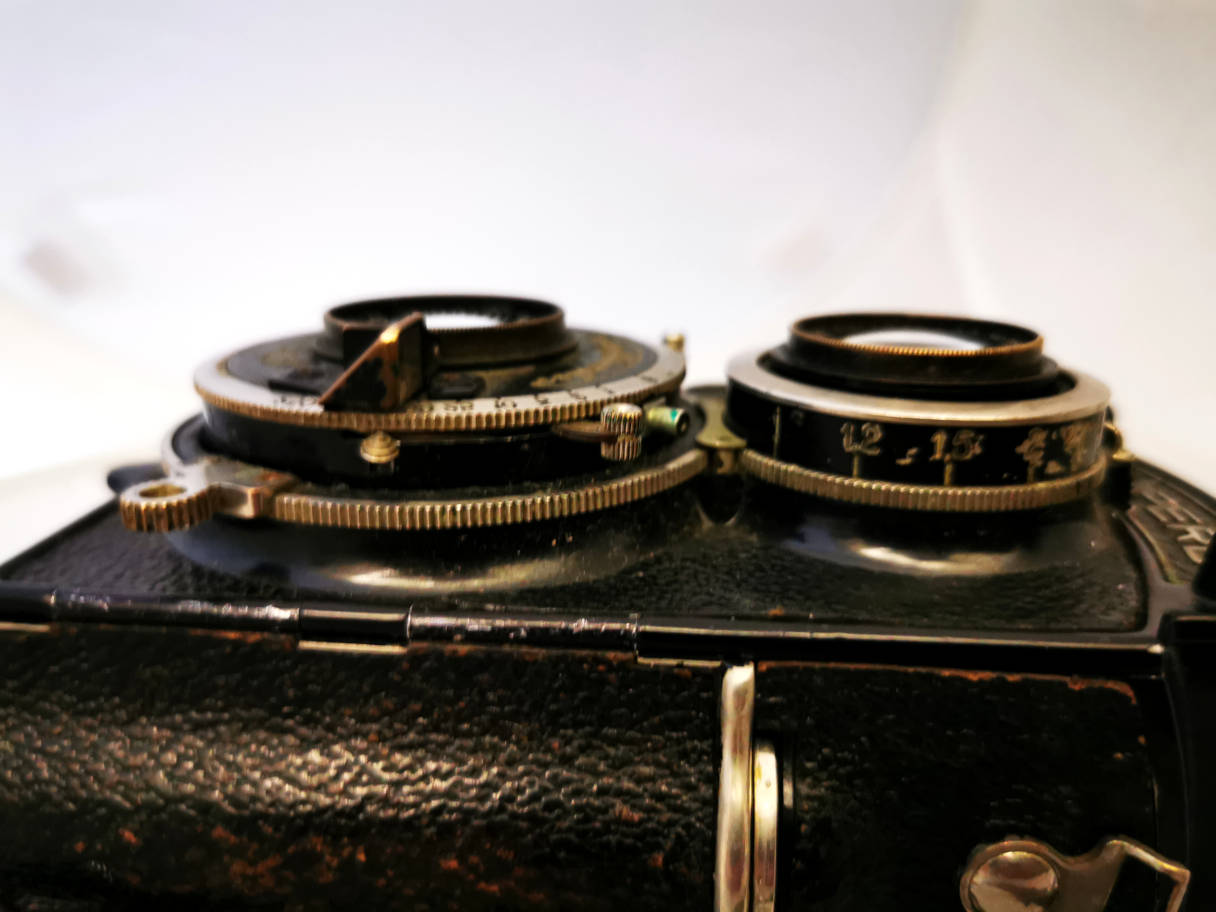
...and none at infinity.
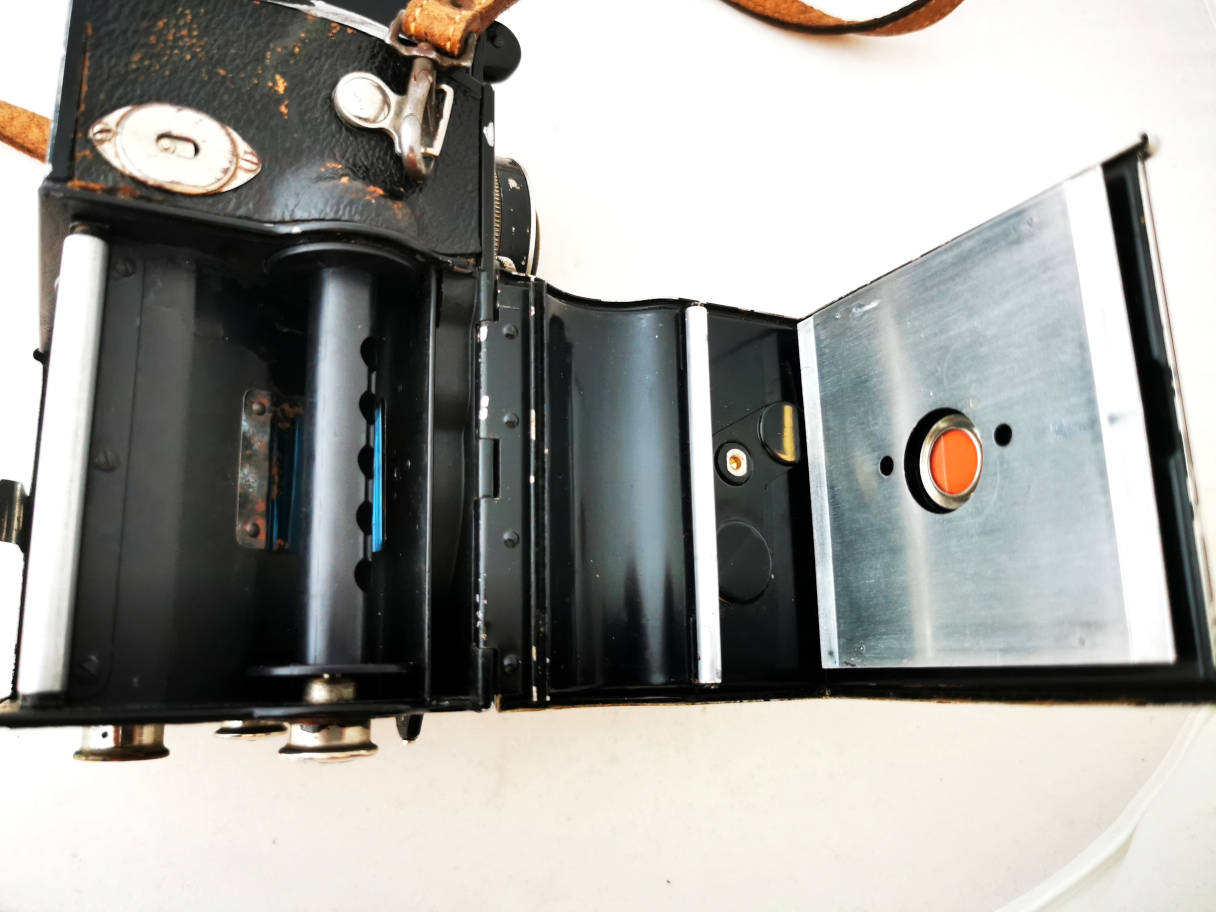
The Superb has a very unusal horizontal film orientation. Camera back open, film supply side.
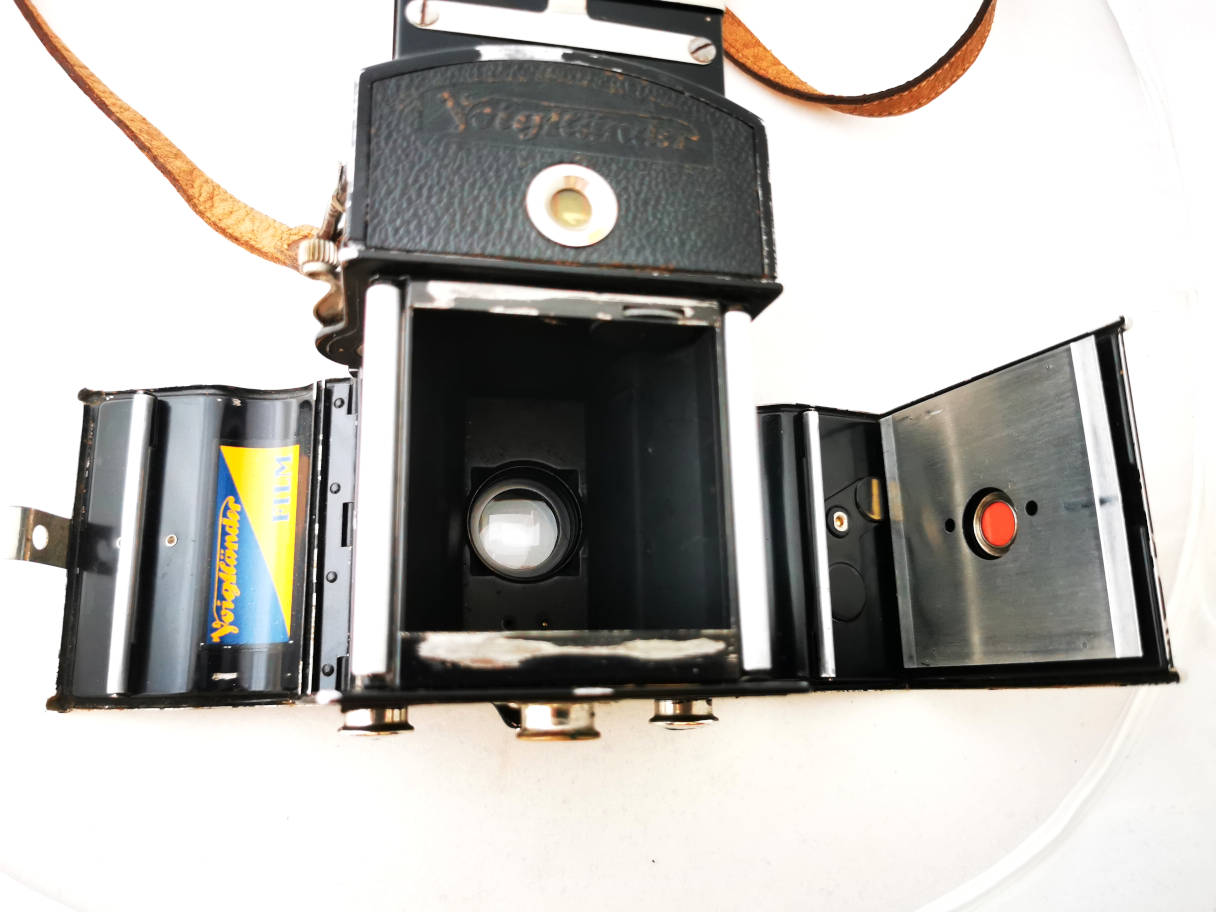
Film chamber.
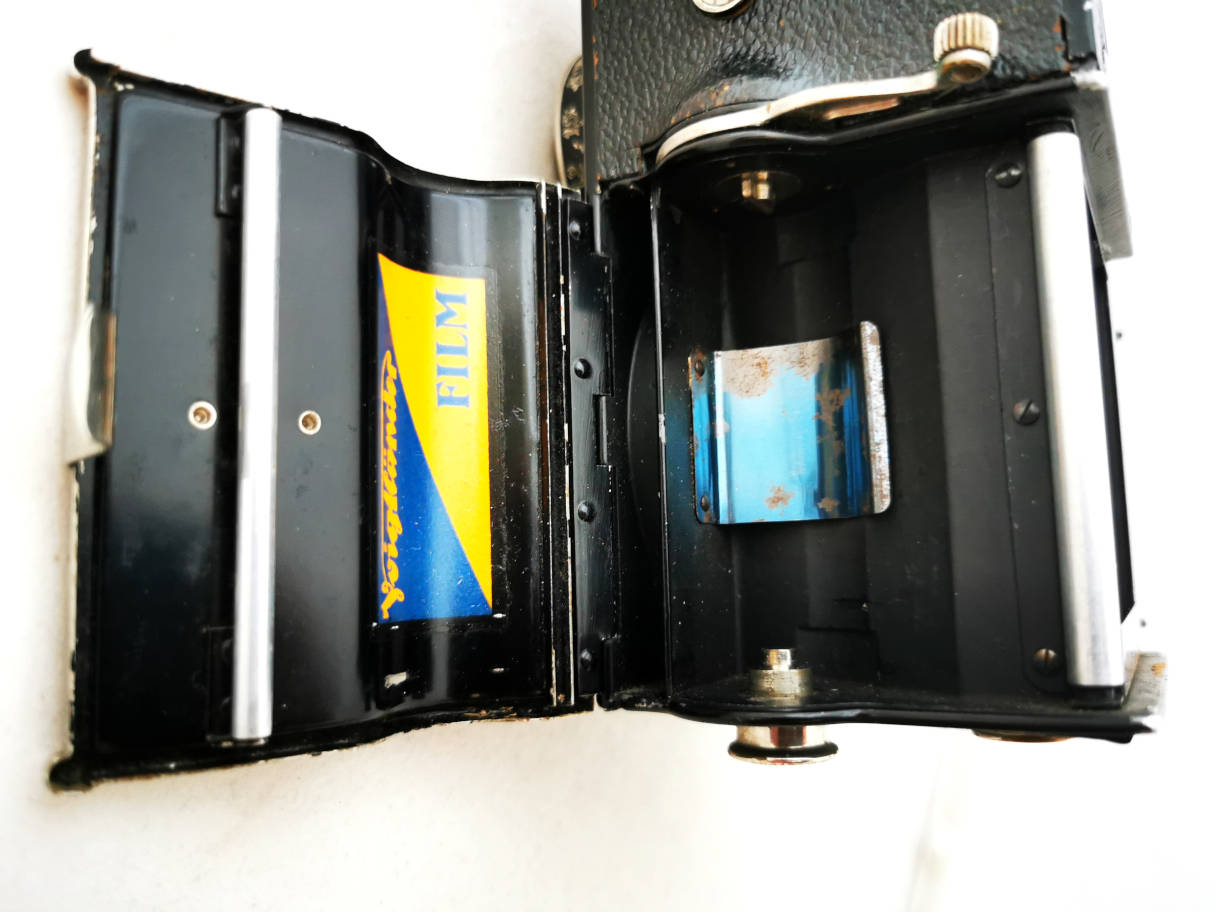
Film spool chamber with wind lever.
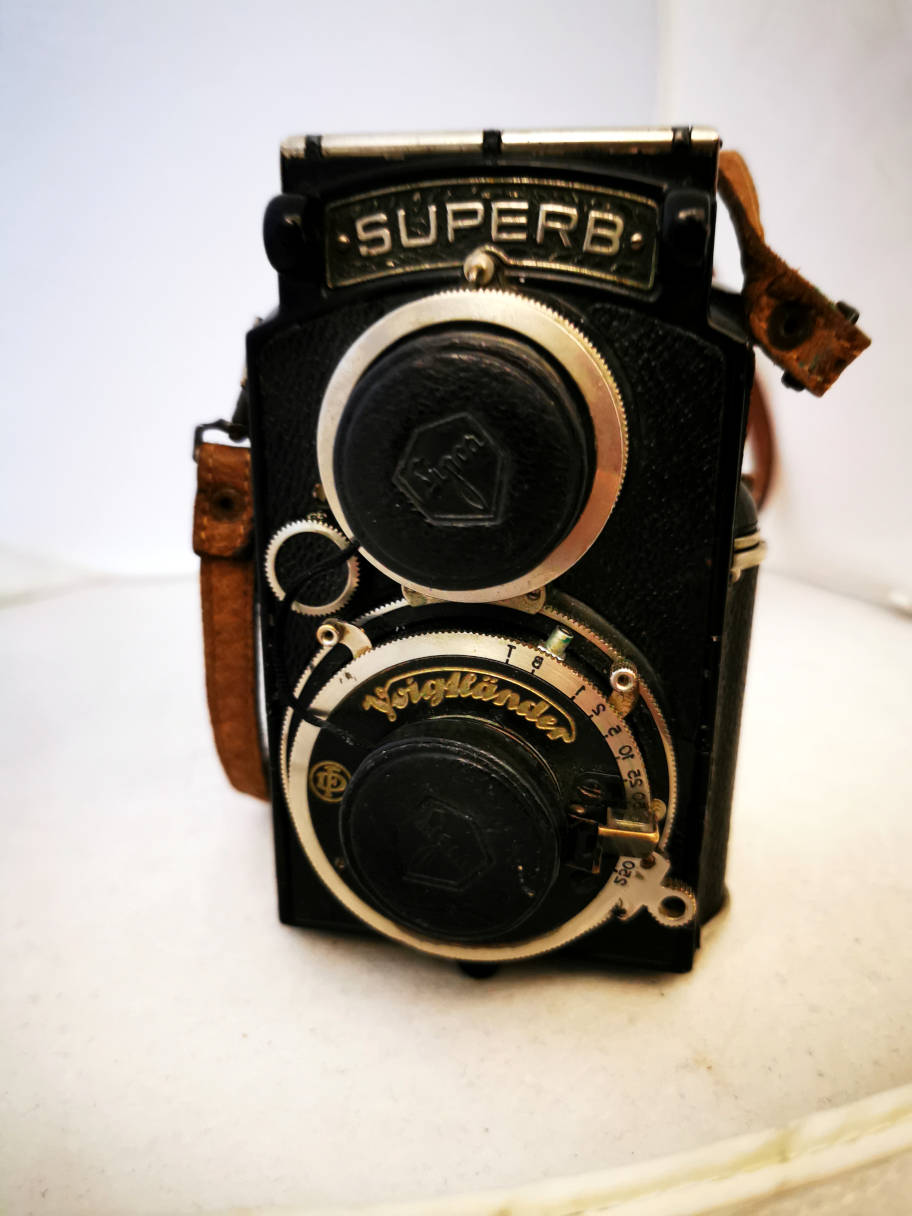
With 3rd party lens caps.
The
Voigtländer Superb 6x6 TLR camera must have been the dream of a
photographer in those days. Everything is designed to ease the taking
of a perfect photo.
Handling is easy and logic. To put a film, open the back flaps. Put the
winding spool into
its place, there is a peg to retract. Put the film spool into its
place, there is a peg to retract as well. Engage the film leader into
the winding spool and make one or 2
turns. Close the back and look into the red window. Wind until no. 1 is
visible. Tape the red
window in case of high speed film, reset the counter. Ready for the
first shot. Set time and
aperture. Focus on the ground glass by turning the tab on the lens.
Take your
photo. Wind while regarding the counter, there is no stop. When all of
the 12 pictures are taken, wind on for several
turns, take out the spool.
If you are photographing in the dark, unable to see the counter, there
is an easy trick to get your pictures nevertheless: Action the advance
lever 7 times between each photo. Spacing will be wider and you will
only get 11 photos from a film, but it will work.
Picture quality is really "Superb". I only came across this camera
lately. I am pleased with this one, it could become one of my favorites.



















